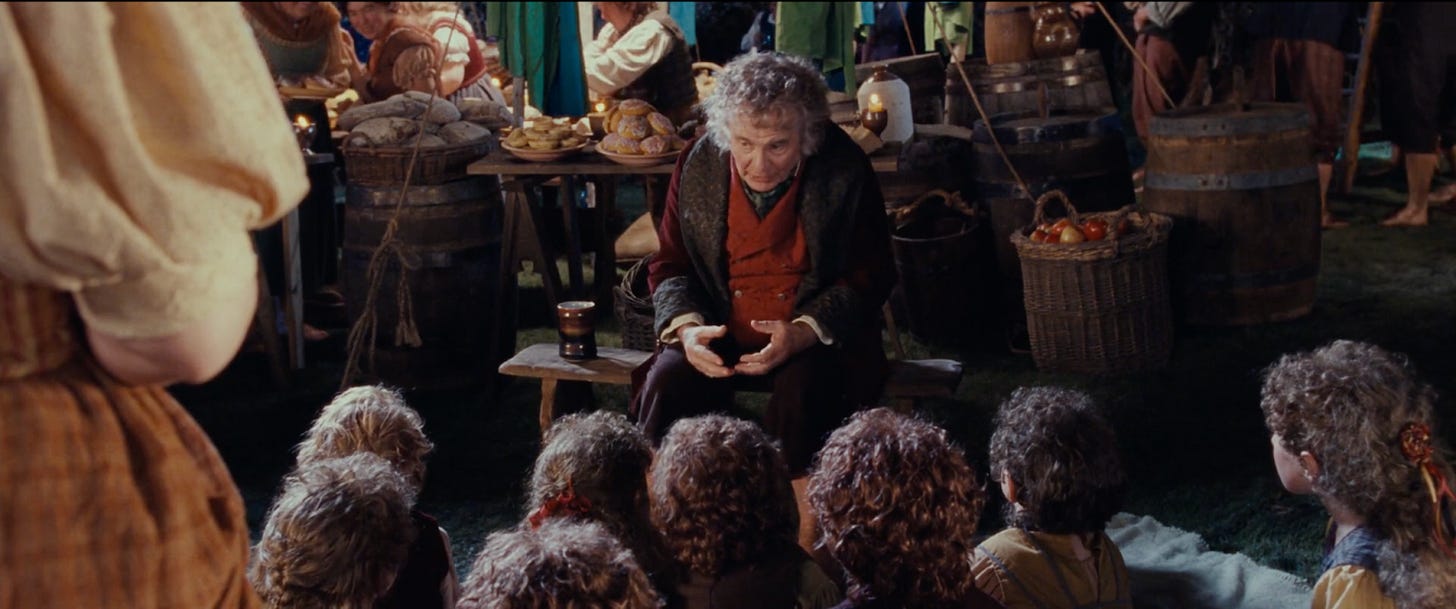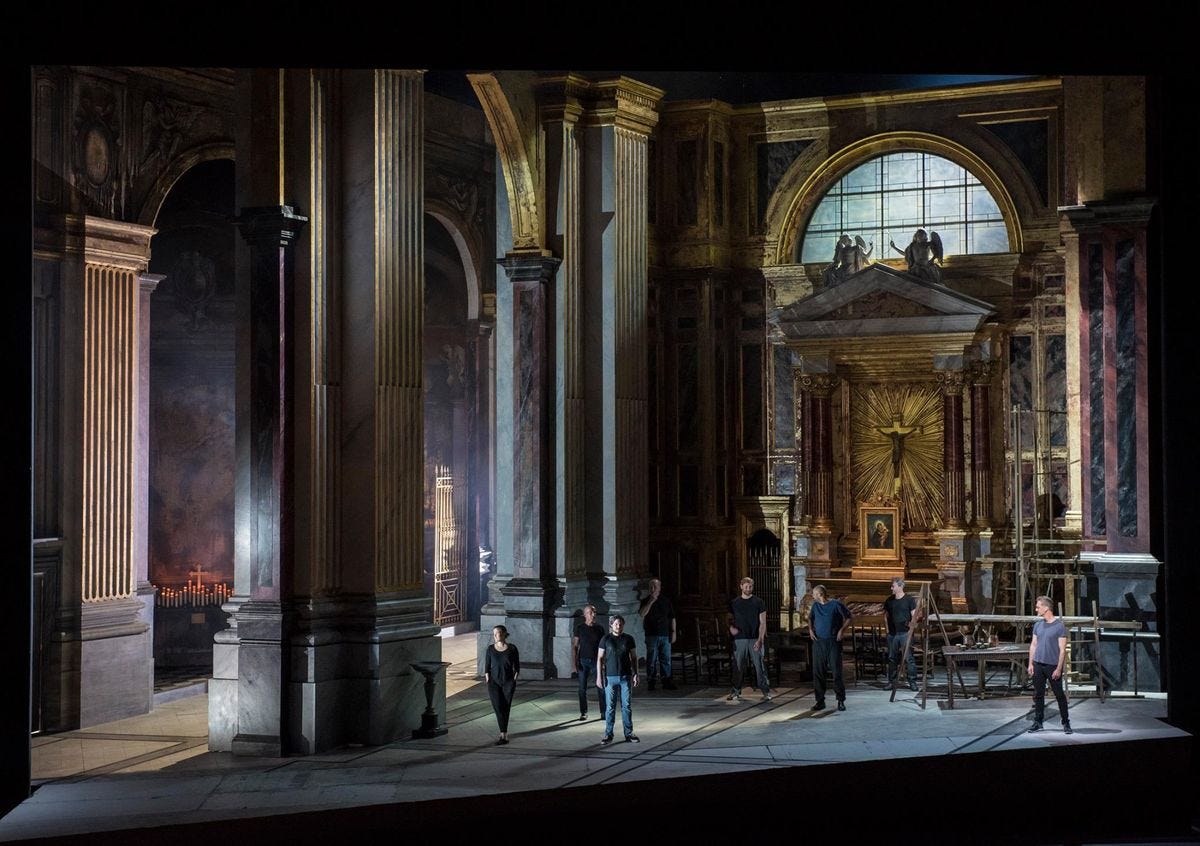'An Encounter Between Language and Voice'
a case against AI narration + notes on ‘the grain of the voice’ and oral storytelling
note for readers: apologies, the voicover is filled with static so adjust your volume as needed. I had to compress it since it was such a large file. note to self: write shorter essays.
“Sound, in its distributive and dislocating permeability appears as if from everywhere; it flows as an environmental flux, leaving objects and bodies behind to collect others in its movement.”
— Brandon LaBelle, Acoustic Territories: Sound Culture and Everyday Life
I heard an older woman restrain her tears from entering the world as she read about her dying mother. Her audience, a mix of young and old journalists, historians, poets, novelists, and playwrights, held their breath while listening to her choke on her words, which, by the way, had to be less than 500 characters. For the sake of time, and all. An applause rang inevitably after. The woman, though physically the same after, somehow stoked a fire in everyone else, where feelings like admiration, grief, and acceptance rose above each other like smoke trails in a burning room.
The café in Chelsea hosts a weekly writing club. Each meeting begins with brief introductions, epithets casually exchanged like calling cards: “I’m an Irish poet,” “I’m a historical fiction writer,” “I write sci-fi.” Sometimes, someone will say timidly, “I’m not much of a writer, but—” and the theatrical host laughs in their face before fixing them with the most solemn pair of eyes: “If you write, you are a writer.” There’s usually a gulp of acknowledgement in response from the first-time goers. A canon event, I tell myself.
After, we work on our projects. During the second half, those who had signed up to read would take turns sharing their work, such as a poem, a thread of dialogue, or a description from an unfinished novel. It was a harmless structure, though I can imagine sharing your work with strangers each week, especially your drafts, can be a form of physical torture for the average human. For writers, it’s either an innate sense of masochism or a kind of courage that does not even hold enough potency to stay in the body of its name. That’s why the meaning of courage at times slips into the bodies of “vulnerability” or “freedom”. The woman who spoke of her dying mother had the kind of courage that connected pain with ease. The room could tell. The part-time baristas, who sat earnestly despite not being paid to listen, who were secretly training to become professional dancers, could also tell.
This year, I began receiving invitations to perform my poetry and essays aloud. I remember practicing one piece (about my twin brother) at that writer’s club, before rereading it live on stage at a literary event graciously hosted by my elegant writer-friend,
. I remember choking on my own words just as the older woman did. I remember the faces of the writers’ group, their eyes holding mine captive. Holding me close, holding me from afar.For so long, I saw the spoken word as separate from the written. Why bother, when the written word was all I knew and all I wanted to master? It was accessible, enduring, and able to reach people around the world efficiently.
And yet, the oldest form of storytelling remains…feathered still.
Patrick Nunn’s view on oral societies speaks to how storytelling was more of a necessity, a mode for survival, than for consumption or entertainment (these two, I fear, are now married in holy matrimony).
“Humans have a deep-rooted affection for narrative that, I suggest, was born long ago in oral societies. In those times, listening to the stories of your elders was mandatory, not optional. If you didn’t listen, you couldn’t learn. And if you didn’t learn, you wouldn’t likely survive. So strong was the communal will to survive, that everyone learned – there was no choice. People in oral societies learned to be attentive listeners and, later in life, habitual storytellers.”
favorite fictional scenes of oral storytelling ↓

You only need a quick pulse on the internet these days to notice how this transmission, this semi-archaic but vital handing down of what keeps a people alive, is slowly being de-feathered by the unregulated and casual use of AI, caressing its way into all five of our human senses. Though in this essay, I’m specifically exploring sound and how it connects the spoken and written practice.
⏶⏷⏶
I started my morning late—a usual sign I’d be multitasking all day. I figured it was time to finally catch up on the articles I’d been setting aside for weeks, so I queued up the first essay in my Substack library and let the audio run.
I think it was Cora’s voice reading to me. Substack’s settings describe her as a female narrator with a soft, smooth tone. There’s also Oliver, the default male voice, along with Taylor, Casey, Stewart, and Victoria. At first, I was curious and kind of excited to see so many options. They sounded perfectly synthetic (which, I guess, is the point?). And so smooth. Ridiculously smooth. But a few paragraphs in, I couldn’t get into the essay. The voices kept pulling me out of it.
I remembered one of my favorite Substack features, one I’ve loved in theory but rarely used in practice: the option for writers to record their essays. I thought maybe I could just go into my settings and disable the AI narrator, but it turns out it’s there by default (as Oliver) unless the writer chooses to record their voice. So we can’t just turn it off, I kept thinking to myself. It’s just there, built into the app.
*this feature does not exist in the desktop version, btw.
It all felt so pervasive, the AI voice existing on the top of the screen waiting for users to click it and hear Oliver, Taylor, Casey, Stewart, or Victoria. Then again, it was a small thing, really—the existence of that narration. What’s four to six minutes of my life listening to a synthetic voice? I’m still accessing the information, right? Still learning. Still listening to the story. That’s all that should matter… right?
It depends on what you’re on Substack for. If you’re self-publishing, you have full control over what you write and how it reaches your audience. If you consider writing a form of your art, a craft you respect, then why not take it all the way?
Maybe it’s not realistic to record every essay, but I urge you to start narrating your stories. Keep voice memos if you don’t want to publish them. Consider it a way of archiving your work. It’s unpredictably hard, awkward, and time-consuming. But you’ll learn so much about the way you pronounce and perform the meaning behind the words you wrote. It’s also a convenient way to keep the tradition of oral storytelling alive, even if your essays lean technical and academic. Spoken word is a separate beast, yes. But stepping into that space, imperfectly, makes you a better writer, too.
How?
It forces you to start writing with the body in mind.
We’ve strayed far from that relationship. The body and the voice don’t meet much anymore. We type with our thumbs, edit in silence, and hit publish without ever hearing the words out loud. From the mind to the server. Sent.
Our words rarely sit inside the body long enough for us to understand it through a different vessel. Our language drifts. It is unanchored from breath, from tension, from the thing that used to carry it.
I want to feel how your writing transitions from language to voice. Where your tone rises. Where it softens. What makes you pause. What makes you think. Where the grain lives in its natural habitat.
Roland Barthes discusses his concept of the grain of the voice in an essay of the same name. He’s a literary theorist among many other things; seriously, look him up—the man seemed to want to live nine lives. The grain he refers to comes from his reflections on music, inspired by two opera singers: Dietrich Fischer-Dieskau and Charles Panzéra.
He describes it as “a signifying play having nothing to do with communication, representation (of feelings), [or] expression,” but rather a space “where melody really works at the language… the voluptuousness of its sound-signifiers, of its letters” (Barthes, as quoted in BST Journal).

If you’re confused, then you’re in good company. His definition of the grain is often misunderstood. My ear is untrained when it comes to classical music, especially opera. So much of Barthes’ thinking around the grain feels abstract to me, maybe because it’s overly shaped by his knowledge and affinity for that world.
To understand how he views the grain, we must understand what it is not. The grain is not texture, at least not in the usual sense. It’s not a synonym for rasp, timbre, warmth, or roughness. It’s not simply the “tone” of a voice or a matter of style or delivery.
There are many ways journals and sound theorists describe what the grain is and what it isn’t, but one of my favorite explanations is Barthes’ idea of the grain as the “sung writing of language” (BST Journal, 185).
“For Barthes, a good singer is one with a discernible grain that allows language to become a form of writing, a text open to multiple interpretations rather than fixed meaning. He explains that writing is “‘that neutral, composite, oblique space where our subject slips away, the negative where all identity is lost, starting with the very identity of the body of writing’” (BST Journal, 143).
Maria Grigoriu describes a shorter definition: the grain is “the body in the singing voice, in the writing hand, in the performing limb.” The grain exceeds meaning because it carries the body, and, honestly, that’s the most comforting thing I’ve come across in my research.
Why? Because we can never experience the body in its pure, elemental, “natural” form. In the body, in the voice, everything is already shaped by two forces:
Discourse: the cultural, social, and linguistic systems we live inside + language, meaning, norms, ideologies
Technology: microphones, recording devices, media platforms, musical training, and instruments,…AI (lol)
So my fellow writers—keeping all of this in mind—why settle for synthetic voices to read your words aloud? Yes, audiobooks serve a different purpose, but when it comes to your own writing, speaking in your own voice dispels any illusion of perfection.
Taking the time to record yourself completes the circle of storytelling. It honors the oral tradition. It attempts to bring the body back into the work.
And at the end of that writers club, a man looked me in the eyes and told me it was painful to hear me read about my brother. Then he said it must have been even more painful for me to read it aloud.
Later, on stage at Valerie’s Tender Summer literary event in June, I watched writers tear through their words with a fervor that cannot be rehearsed or repeated, only lived once.
I think that’s the grain. A phantom of sorts—maybe of the opera itself, who knows. It slips into the body, into the voice, breaking through noise.
⏶⏷⏶
Live recordings from some of my favorite writers/poets.






I loved this so much prathigna! Hearing you read your piece aloud at tender summer brought even more power to the piece. This is such a great reminder of the power of hearing writing in the writer's voice--I'm going to try to record more of my work going forward!
I also need to experience one of your performances one day! Loved this. My bf often voice memos his drafts and notes, and THEN inputs it all into Substack and edits. I always thought it was such an interesting process!